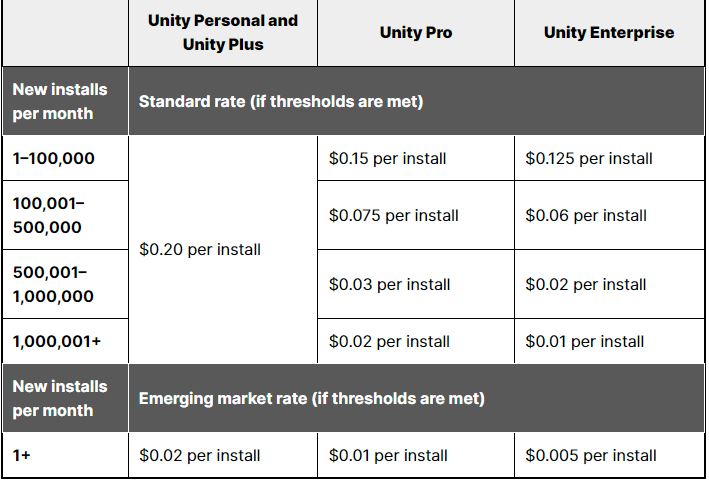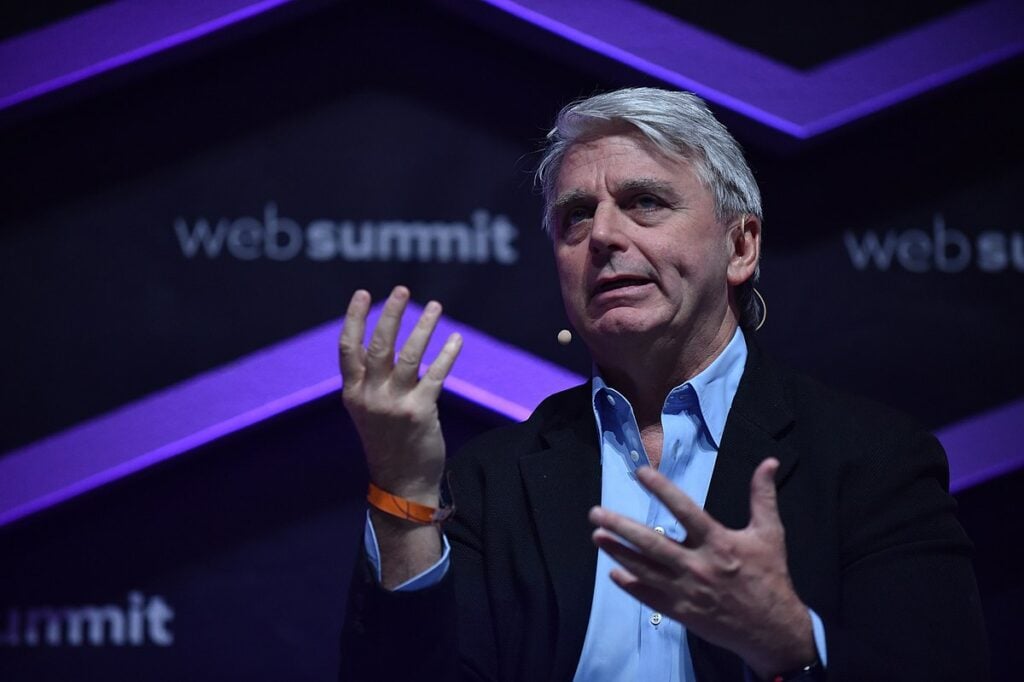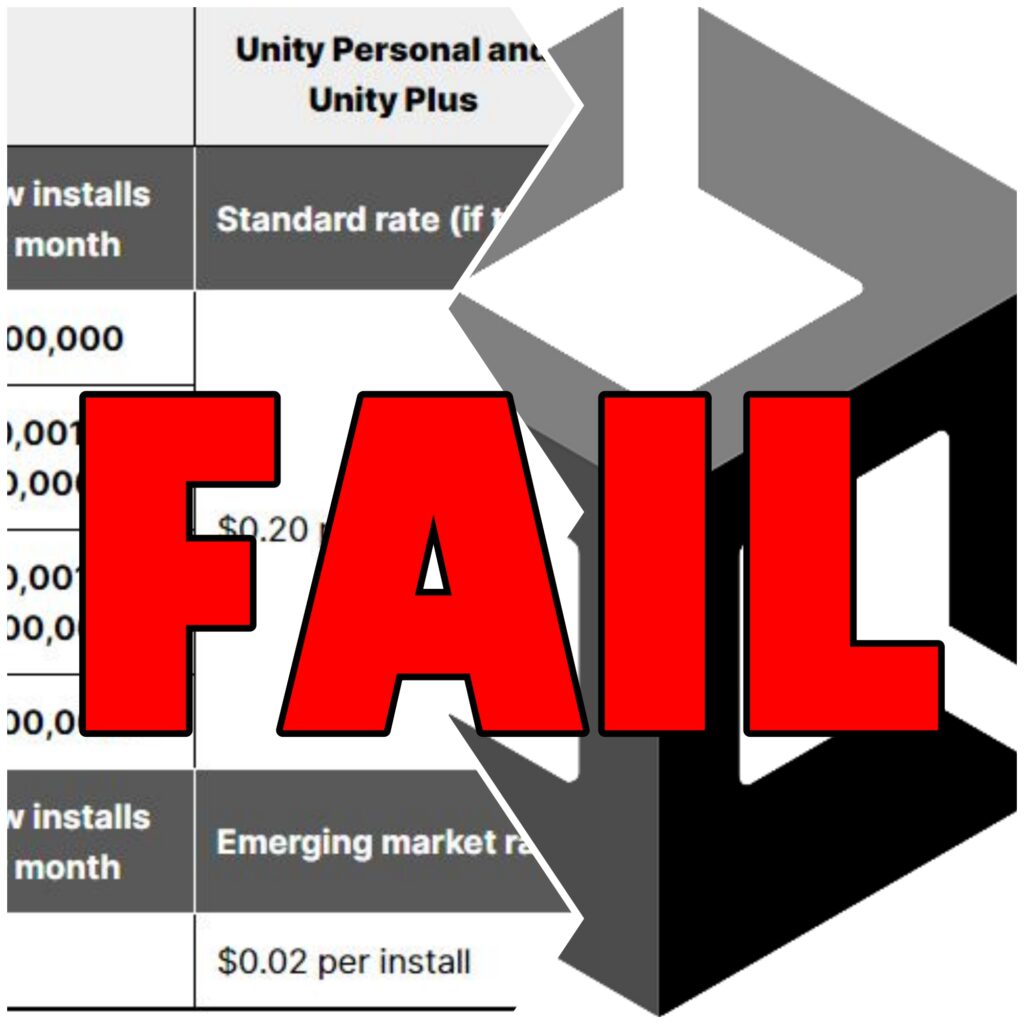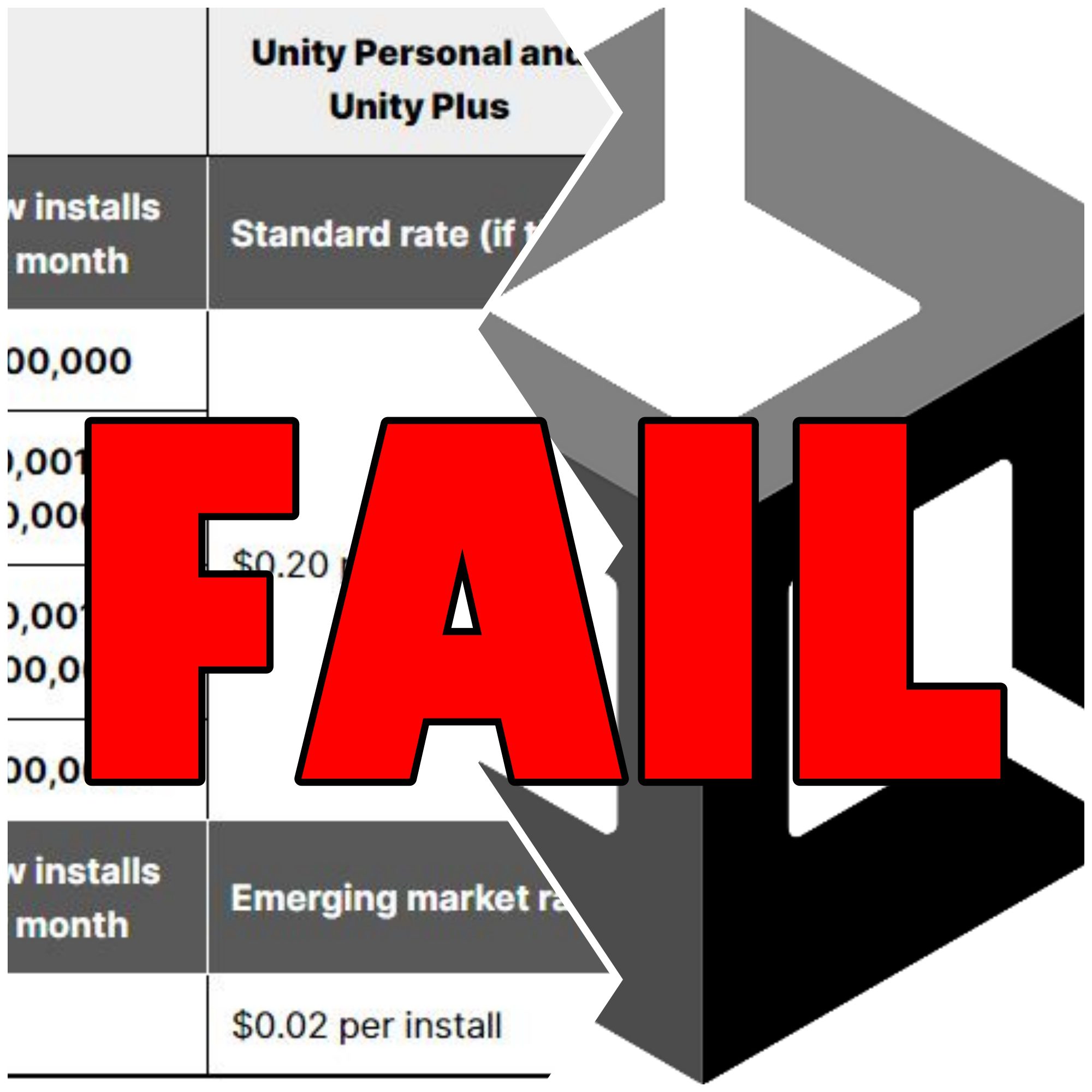A Masterclass in Marketing Missteps
Unity 3D, a frontrunner in the game development engine landscape, recently unveiled a seismic shift in its pricing strategy. This move has ignited a firestorm among its user base and raised serious questions about the company’s marketing and public relations strategy. As a marketing expert and journalist, I must dissect this situation and shed light on how Unity’s pricing overhaul contradicts its previous marketing initiatives and jeopardizes its brand reputation and what role CEO John Riccitiello played in this strategic blunder.

UPDATE: Unity’s Open Letter: A Step Towards Damage Control?
In a recent development, Unity has published an open letter addressing the community’s concerns about its new Runtime Fee policy. Marc Whitten, who leads Unity Create, starts the letter with an apology and acknowledges that they should have consulted the community before announcing such a significant change. The letter outlines several adjustments to the initially announced policy:
- Unity Personal plan will remain free with no Runtime Fee, and the revenue cap will be increased from $100,000 to $200,000.
- Games with less than $1 million in trailing 12-month revenue will not be subject to the fee.
- The Runtime Fee policy will only apply to projects starting with the next LTS version of Unity shipping in 2024.
A Genuine Apology or Too Little, Too Late?
While the open letter may seem like a step in the right direction, one has to question whether it’s too little too late. The trust deficit created cannot be easily mended with a single letter.
The Timing and Transparency
The timing of this letter is also crucial. It comes after a significant backlash and migration to competitor platforms. This raises questions about whether Unity is genuinely committed to its community or is merely reacting to the negative PR.
The Unanswered Questions
The letter leaves several questions unanswered. For instance, how will Unity regain the trust of the developers who have migrated to other platforms? And what about those in the middle of their projects and now reconsidering their game engine choice?
Unity’s open letter is an apparent attempt at damage control, but it also teaches the importance of community engagement and transparent communication. While it may alleviate some concerns, the long-term impact of this pricing fiasco remains to be seen. Unity has a steep hill to climb to regain its community’s trust and restore its tarnished reputation.
The Pay-Per-Download Debacle
Unity 3D’s new pay-per-install pricing scheme radically departs from industry norms. While the company claims this model allows creators to keep ongoing financial gains from player engagement, it overlooks that this could be a death knell for indie developers and those in emerging markets like India and China. It’s akin to building a brand like Apple around environmental sustainability and suddenly investing in coal mines.

The Influencer Paradox
Unity has invested millions in influencer marketing, partnering with top YouTubers and industry influencers to promote its platform as community-centric and affordable. The new pricing strategy starkly contrasts this image, creating what marketing experts call “brand dissonance.” It’s a classic case of taking one step forward and two steps back, undermining years of brand-building efforts.
Trust Deficit Among Developers
Unity’s new pricing model has led to a palpable loss of trust among developers. Online forums and social media are abuzz with discussions about migrating to other platforms like Unreal Engine and Godot. This loss of trust is a quantifiable metric that will undoubtedly impact Unity’s bottom line and market share.
The Malicious Download Quagmire
The experts rightly point out the risk of malicious actors exploiting the pay-per-download model to burden developers financially. This glaring oversight in Unity’s new pricing strategy adds another layer of complexity and risk for developers, making the platform less appealing.
Digital Preservation and Legal Concerns
The new fees could have a chilling effect on digital preservation efforts, as developers might be incentivized to delist older games to avoid charges. Additionally, Unity’s tracking tools for installs might run afoul of government privacy laws, adding a legal quagmire to an already complicated situation.
The Discontinuation of Unity Plus
Unity’s decision to discontinue the Unity Plus subscription tier forces developers into higher, more expensive subscription tiers. This move is not just a pricing change; it’s a fundamental shift in how Unity does business, further alienating its user base.

CEO John Riccitiello’s Role
John Riccitiello, the CEO of Unity, has been conspicuously silent on this issue. A CEO’s role is operational and involves safeguarding the brand’s image. Riccitiello’s lack of immediate intervention suggests a disconnect with the community his company serves.
Real-World Reactions
The developer community’s reaction has been overwhelmingly negative. Quotes from notable figures in the game development community highlight the widespread discontent and mistrust, adding more weight to the argument that Unity has made a monumental marketing misstep.
The Mass Exodus to Competitors: Godot and Unreal Benefit
One of the most telling consequences of Unity 3D’s pricing overhaul is the mass migration of developers to competitor platforms like Godot and Unreal Engine. This isn’t just a knee-jerk reaction; it’s a calculated move by developers who feel betrayed by a platform they once trusted.
Unity’s new pricing strategy has acted as a catalyst, accelerating the exploration of alternative game development engines. Godot, known for its open-source model, and Unreal Engine, famous for its high-quality graphics and no royalty fees until a game succeeds, have become the go-to alternatives.
Why Trust Matters in Business
In game development, trust is not just a buzzword; it’s a currency. Developers invest time, resources, and intellectual capital into a platform, expecting stability and fairness in return. Unity’s pricing changes have devalued this currency, leading to a trust deficit that could take years to rebuild.
The Financial Upside for Competitors
While Unity grapples with its self-inflicted wounds, competitors seize this opportunity to grow their user base and market share. Forums and social media platforms are now filled with tutorials and success stories about transitioning from Unity to Godot or Unreal, further fueling this migration.
The Long-Term Implications
The long-term implications of this developer exodus are dire for Unity. Not only does it stand to lose its most valuable asset—its community—but it also risks becoming a cautionary tale in how not to implement a pricing strategy. As developers flock to other platforms, Unity’s ecosystem will suffer, leading to a downward spiral that could be difficult to reverse.
The migration to Godot and Unreal Engine is not just a trend; it’s a loud and clear message to Unity 3D. The company needs to act swiftly and decisively to stem this tide, or it risks losing its competitive edge in an unforgiving market of such monumental missteps.
Conclusion
Unity 3D’s new pricing strategy is a masterclass in how not to execute a pricing overhaul. From a marketing and PR standpoint, the company has contradicted its previous efforts and risked its brand reputation and user trust. As Unity moves forward, one wonders how much it will cost—financially and reputationally—to recover from this debacle. One thing is clear: Unity has just made its climb a lot steeper in the competitive landscape of game development engines.















